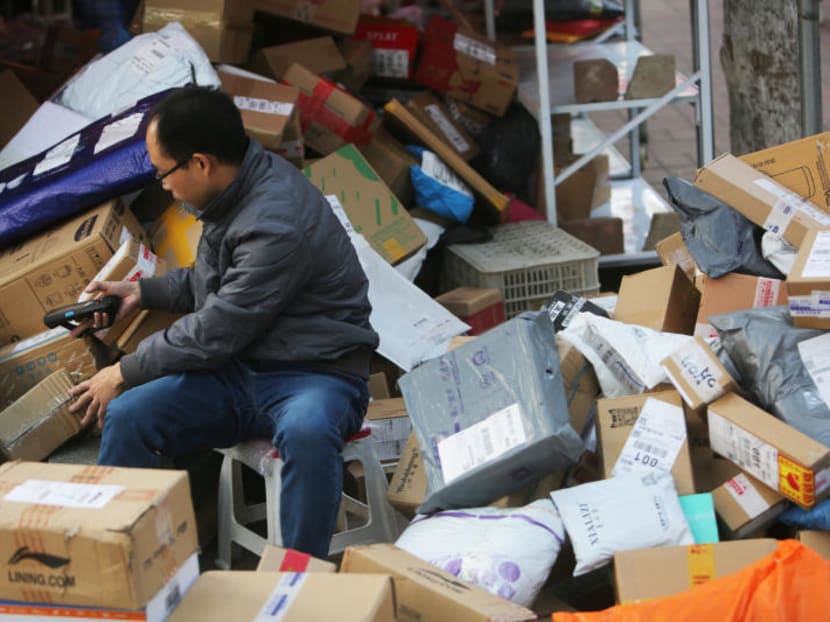Taxing e-commerce players a potential minefield: Experts
SINGAPORE — While the fast-growing e-commerce sector could be a lucrative source of future tax revenue, experts TODAY interviewed pointed out the myriad of challenges that governments around the world have to grapple with, including the difficulty of enforcing the tax regime and collection.

Some countries have started to impose goods and services tax on overseas online purchases, requiring Internet retailers to collect such tax from residents, as long as their mailing addresses are based in these countries. REUTERS file photo
SINGAPORE — While the fast-growing e-commerce sector could be a lucrative source of future tax revenue, experts TODAY interviewed pointed out the myriad of challenges that governments around the world have to grapple with, including the difficulty of enforcing the tax regime and collection.
On Sunday (Nov 19), Prime Minister Lee Hsien Loong reiterated that it is a matter of when and not if taxes will be raised, noting that the government will incur heavy spending on social services and safety nets.
The prospect of higher taxes had previously been raised by other government leaders, and experts believe that increasing indirect consumption taxes would be the more viable option compared to revising personal and corporate tax rates.
In particular, they have suggested taxing e-commerce operators such as Amazon and Taobao as well as those providing business-to-business services.
Some countries have started to impose goods and services tax on overseas online purchases, requiring Internet retailers to collect such tax from residents, as long as their mailing addresses are based in these countries.
However, e-commerce tax regulations are not without potential obstacles. Among other things, transactions can be difficult to track and there could be loopholes when consumers use package-forwarding services which allow them to use addresses in another country when making purchases.
Associate Professor Darren Koh from the Singapore University of Social Sciences pointed out that e-commerce transactions can be carried out on “closed communications systems” — such as the WeChat app — which “make it possible to... make and receive payments within (an) encrypted system”.
Intermediaries such as mobile marketplaces or platforms with multiple sellers could also make the collection of such consumption tax more complex, said Mr Yeo Kai Eng, a partner at Ernst & Young Solutions.
These could include Amazon, Lazada or Carousell, for instance. “Is it fair to impose the GST (goods and services tax) registration burden on these overseas intermediaries, to collect and account for GST on behalf of the underlying overseas suppliers?” he said.
Intermediaries could also include mail forwarding services such as Borderlinx and VPost. Customers in Singapore have been using such services to make online purchases in the United States, Europe and other places.
This would make it difficult for the Governments to impose taxes on online purchases made by people living in the Republic, the tax experts noted.
There have also been suggestions by experts to update the rules covering online purchases of less than S$400 in value. Such purchases are currently exempt from the 7 per cent GST.
Mr Yeo said: “With the e-commerce boom, is it time to eliminate or reduce the S$400 exemption threshold or introduce some form of GST registration for overseas vendors supplying low value goods?”
Still, as things stand, it is a challenge for the Government to enforce these rules on vendors based overseas.
In 2015, consumers in Japan started paying an 8 per cent consumption tax for all overseas online purchases. The rate was increased to 10 per cent this year. Customers in South Korea are also required to pay a 10-per-cent tax when they buy goods and services online.
Australia will roll out such a tax next year while Malaysia is considering such a move.
Typically. countries that tax consumers on online purchases require overseas online retailers to register and pay GST or value added tax to authorities.
The experts noted that such a regime is cumbersome for the retailers. For example, for those with customers in several countries, they would have to charge GST only for residents of countries which impose it.
The very nature of e-commerce, with no physical boundaries or presence, makes enforcing tax rules a potential minefield, the experts reiterated.
Mr Chia Seng Chye, Partner of Tax Services at Ernst & Young Solutions, said: “This means that e-commerce businesses can be conducted by anyone, anywhere and anytime, which makes it difficult for tax rules to be current and relevant.”
He added: “Compounding to the complexity is that tax rules have traditionally been drafted along the lines of physical presence and nexus, which may not able to deal adequately with e-commerce transactions that are carried out virtually.”






